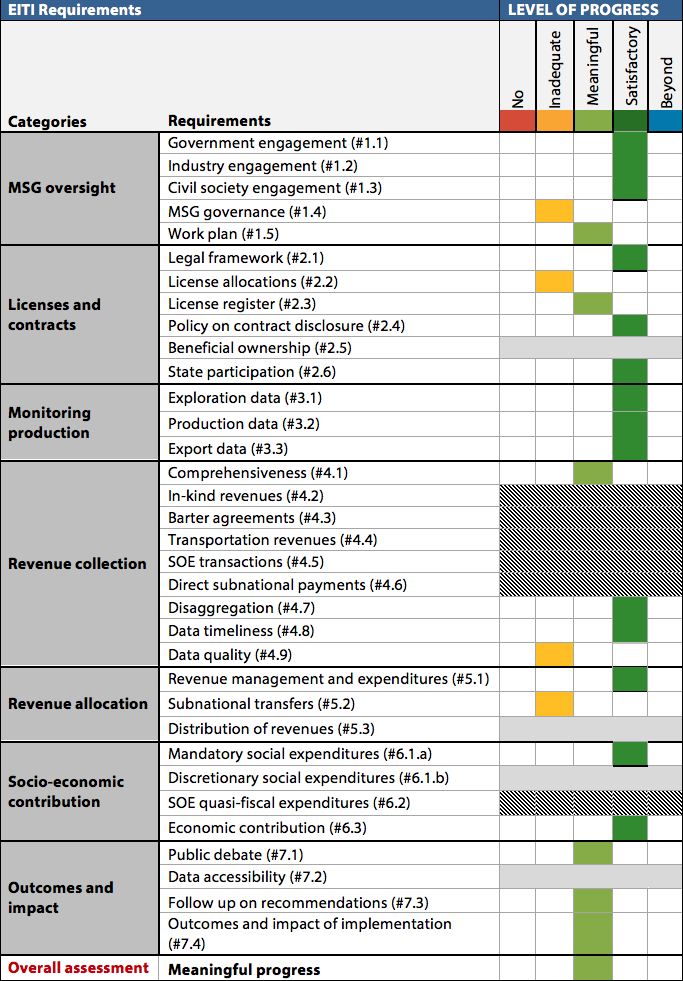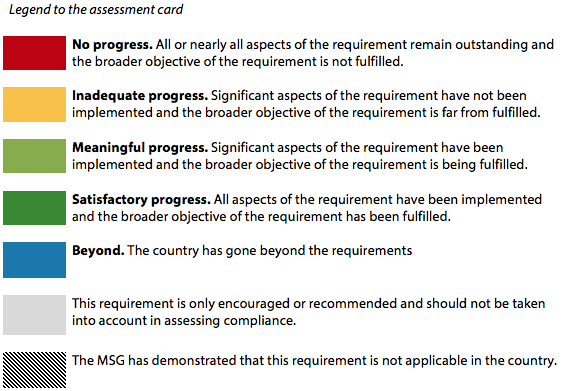
Mali makes meaningful progress in transparency despite significant challenges
Mali makes meaningful progress in transparency despite significant challenges
EITI implementation has proved resilient despite political instability and terrorist attacks.
Wednesday 24 May 2017 - The EITI Board has concluded that Mali has made meaningful progress in implementing the EITI Standard. The Board reached this decision following a Validation process. Validation is the EITI’s independent quality assurance mechanism and includes an extensive consultation of stakeholders.
A resilient mining sector in a volatile environment
Mali has been producing gold since the 4th century. However, a military coup that toppled the democratically elected government in 2012 and multiple terrorist attacks in recent years, have posed significant threats to economic activities. Mining activities are concentrated in the south and have remained for the most part out of reach of the multiple armed groups that occupied the northern part of the country in the aftermath of the coup.
Mali remains Africa's third-largest gold producer behind South Africa and Ghana, with significant artisanal mining activities. Approximately 10% of the country’s gold output is produced by more than one million artisanal miners. The rest comes from seven mines using industrial methods. Somilo, a subsidiary of Randgold Resources was the country’s largest gold producer. This company is followed by the Syama Mine, owned by Australia’s Resolute Mining Limited, the Tabakoto Mine and the Kalana Mine, which is owned by the Government of Mali and a Canada based company Avnel Gold Mining Limited.
Fredrik Reinfeldt, Chair of the EITI, said:
"We welcome stakeholders’ dedication to implement the EITI Standard in Mali despite the multiple challenges they have faced. It is encouraging to see that their efforts are beginning to yield some tangible results."
Expanding the scope of EITI reporting while implementing reforms
During the Validation process, stakeholders explained that the EITI had improved transparency and was building a culture of trust. Reported revenues by the government have doubled from USD 221 million in 2006 to USD 449 million in 2013. The most recent EITI Report includes taxes and other revenues paid by sub-contractors operating in Mali’s mining industry. Building on this innovation, future EITI reports aim to collect revenue information from purchasing houses, “comptoires d’achat”, intermediaries between small and artisanal scale miners and the international markets.
The government has also initiated a wide range of reforms in public financial management, tax administration and tax policy. With support from GIZ, the Ministry of Mining has modernized its mining cadaster and improved transparency in issuing mining licenses. Mali’s new Mining Code includes several innovations and adjustments. These changes aim to protect the interests of the Malian population and ensure that they benefit from the development of the mining sector.
Continuing challenges of internal governance and data quality
Despite these achievements, EITI reporting continues to be affected by major technical issues. One such concern is the lack of a computerised recordkeeping system at the Treasury. The current practice to manually record each transaction in a daily register, does not enable revenue the government agencies to monitor where the revenues have gone. Fiscal identification numbers were not systematically generated when a company was established, causing inconsistencies in tax records and EITI reporting. A lack of timely publication of audit reports by the supreme audit institution, ‘la cour des comptes’, has also hindered the reliability of revenue data.
The validation also highlighted some areas for improving participation and governance of the national multi-stakeholder group which leads EITI implementation in the country.
Scorecard


Notes
- The EITI is a coalition of governments, companies, civil society groups, investors and international organisations. Learn more at eiti.org.
- EITI is chaired by Fredrik Reinfeldt. Mr Reinfeldt was the Prime Minister of Sweden (2006-2014).
- 52 countries are members of the EITI. No country has yet made satisfactory progress with the 2016 EITI Standard. See the list of countries at www.eiti.org/countries.
- Validation is the EITI’s independent evaluation mechanism. It assesses countries against progress made in meeting the 2016 Standard.
- The Board decision in full, including corrective actions and impact of the EITI in the country, can be found here: eiti.org/validation/mali/2016
- The reports giving an extensive review of Mali's extractive sector can be found here: eiti.org/document/validation-mali-2016-documentation
- The Board has taken decisions on the status Mali and Liberia on 24 May 2017: eiti.org/document/validation-schedule-decisions
- See here for a full explanation of the various levels of progress under the EITI Standard.
For further information about the EITI in Mali, please visit the country page on the EITI website and Mali's own EITI website.
Contenido relacionado





